Have questions? Call 1-833-BC-WORLD (1-833-229-6753)
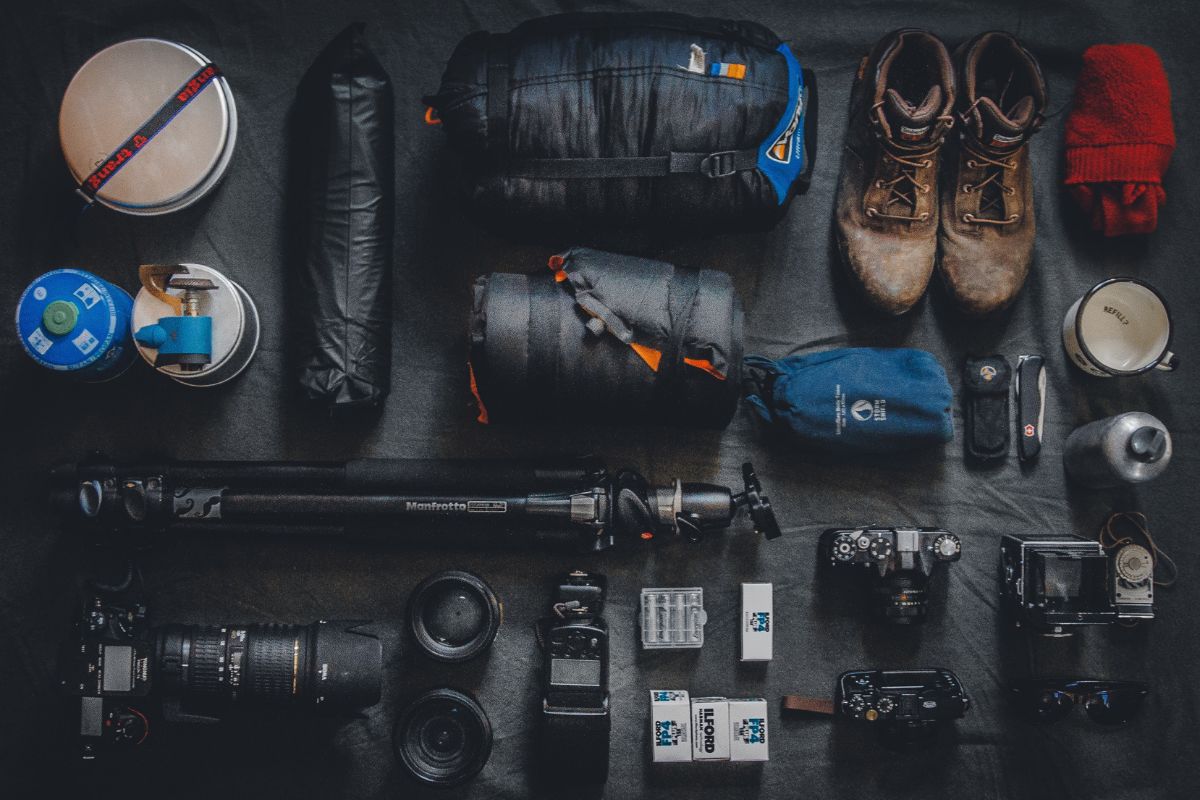
By Avalanche Web Team
Planning your first camping trip or helping others with theirs can be a fun, rewarding experience. However, there’s also a lot that can go wrong with camping, from running out of necessities like food or purified water to encounters with wildlife or injuries while hiking.
This in-depth guide to camping essentials will help you, your friends, and your family ensure you have everything you need before your outdoor adventure.
What to Bring on a Camp Trip?
There are several factors to consider when you’re determining what to include in your packing list of camping essentials. Where will you be camping? Does the campsite list the amenities it has available? What is the weather forecast for the duration of your trip?
Although those were only a few questions, you may find yourself asking even more as you start to put together your packing list.
General Camping Necessities
While camping can be a fun experience, it does require some basic equipment and other necessities to keep your situation livable, especially if you’re planning on going completely off the grid. These pieces of essential camping gear will keep you sane, happy, and healthy on your next trip.
Lights
Depending on the size and type of your setup, your location, and your personal preferences, you may want to include a number of different lights on your list of essentials for camping. These will generally be helpful if you need to move around your tent or campsite at night, especially if you’re away from any established sites at parks or natural areas.
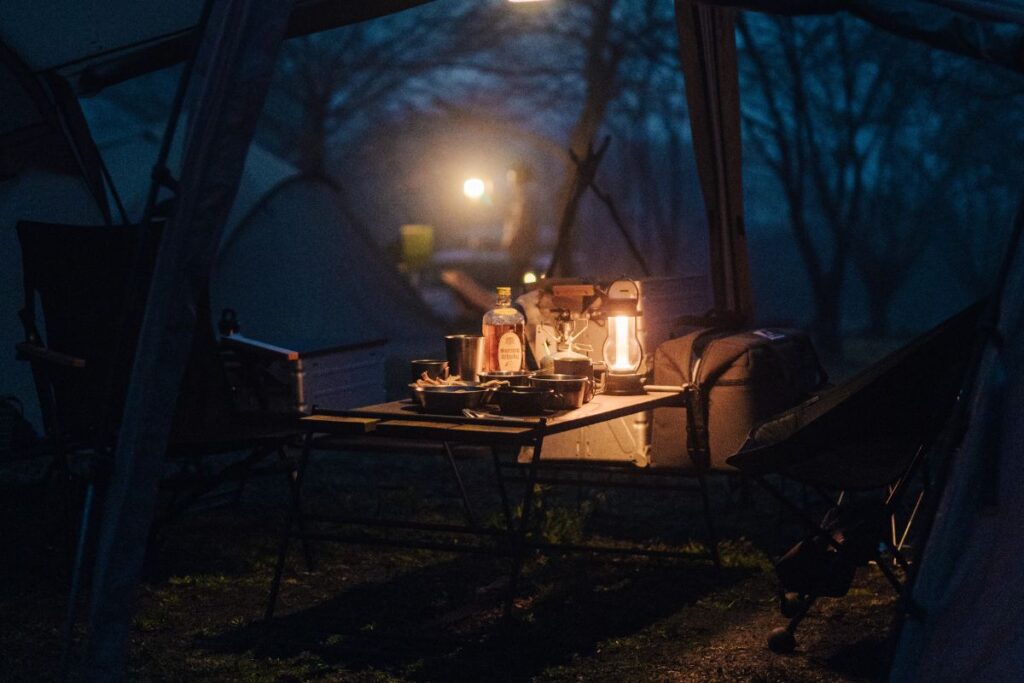
Here are a few of the lights you may find helpful, in descending order of necessity:
- Flashlights
- Lanterns
- Headlamps
- Floodlights
- String lights
Virtually any of these can be used to make a campsite feel more ambient. However, flashlights are essential in any situation, from wandering away to use the bathroom in the dark to finding something you may have dropped on the ground in the night.
First-Aid Kits
The further off the grid you plan to go, the more important it becomes to include a robust first-aid kit in your camping list. Too many things can go wrong, and there are too many opportunities for injury that can become life-threatening.
Some of the bare necessities for a good first-aid kit are:
- Antiseptic wipes
- Antibiotic ointment
- Adhesive bandages in various sizes, ideally fabric
- Adhesive medical tape
- Antihistamines for allergic reactions
- Blister dressings
- Butterfly bandages/wound closure strips
- Gauze pads in various sizes
- Hydrocortisone cream
- Nonstick sterile pads
- Pain relief medication
- Tweezers
- Safety pins
This is one area where you should not skip anything mentioned. Even if it means keeping it in your car or the bottom of your backpack, ensure you have a first-aid kit on hand during every camping trip.
Animal Repellents
The last thing you need while camping is to wake up to the sounds of a bear looking for the bag of cheese puffs you brought into the tent before bed. If you find yourself in a similar situation—be it with a bear, a particularly determined raccoon, or another mammal—animal repellents are your best bet for keeping away the wildlife.
Despite the limited-sounding name, bear spray is not just for bears. It works on practically all mammals, from deer to cougars. Investing in a can of it and knowing how to use it can buy you enough time to get away from the area.
Toiletries
Just because you’re going into the wilderness doesn’t mean you have to smell like the wilderness. A good, basic toiletry kit for camping will include any of the following:
- Shampoo, conditioner, and soap: This is mainly useful if you’re planning on going camping for several days, especially if you’ll be at a campsite with access to showers.
- Dry shampoo: It’s especially helpful to have a travel-sized container of dry shampoo if you’ll be camping in an area without shower access or otherwise need an alternative to liquid shampoo.
- Deodorant: This is non-negotiable.
- Toothpaste and a toothbrush: Again, this is also non-negotiable.
- Menstruation products: If someone in your camping group will likely need a pad, tampons, or even just medication for menstrual pain, this can keep their whole trip from being miserable.
Fire Starter
There are two basic pieces that come with a good fire-starter kit for camping—kindling, and an igniter.
This can range from a few dry sticks and a match to a wax-based tinder set and a utility lighter. If you want to be really old school, you might even consider using a flint and steel fire starter to get the job done.
While this should go without saying, we strongly encourage campers to not start campfires in dry weather or wildfire-prone areas with lots of deadwood. We also recommend completely extinguishing your campfire if you’re done using it, and never leaving a fire unattended. In short, have common sense.
Tools
Everything we’ve listed up until this point is essential enough to warrant its own section. However, there are other camping necessities that you may need, especially if you’re planning on getting far away from civilization:
- Bungee cords: These are versatile tools for any campsite. Not only can bungee cords be great tie-downs when you’re pitching your tent, but they’re also great for keeping food out of reach of wildlife or keeping a tarp in place to protect your sleeping area from the elements.
- Multi-tool: A solid multi-tool like the classic Swiss Army Knife can include everything from a knife to scissors to a corkscrew, making it essential for camping.
- Duct tape: Another versatile tool, duct tape can be helpful for patching leaks in a pinch, including holes or tears in your tent that would otherwise put a damper on your trip.
Shovel: Shovels are more essential than you might expect, especially if you’re deep in the woods and need to prepare a bonfire, use the bathroom, or address any other types of emergencies.
Chairs
If you’re bringing a trailer or camper, these can typically fit inside even the smallest setups. We recommend bringing options that fold or collapse, since they’re easier to stow and transport than standard deck chairs.
In addition, we also prefer bringing collapsible chairs over folding chairs, as they’re easier to take out and pack up when it’s time to head home, especially if you’re camping in a tent and can only take whatever fits in the backseat of your car.
Water Filters and Purifiers
Even if you’re going to an established, state-owned campsite with electrical and water hookups, it can be helpful to bring a water filtration system—after all, campsites at state and national parks might still have lead or creepy-crawlies swimming around in the water supply, depending on your location.
For water purification systems, Aquatabs are an excellent option for providing clean water quickly and easily. Each tab uses 1 part-per-million (PPM) of chlorine, which is enough to kill any bacteria or parasites before they can make you sick and ruin your camping trip.
Car Camping Essentials
Car camping typically involves using a flatbed truck or hatchback as part of your campsite setup, and it can be a great way to get comfortable on longer camping trips, especially if you can fit an inflated air mattress into your backseat.
However, because the setup involves your vehicle, some car camping essentials may look a bit different from conventional needs.
Tents
Camping and sporting goods suppliers offer tents designed to work with trucks, SUVs, and other hatchback vehicles. Options can range from a tent that attaches to your open hatchback all the way up to models that can be set on your car’s roof.
Sleeping Bags
Whether you’re car camping or roughing it under the stars, sleeping bags are essential. The best sleeping bags are designed to regulate heat and repel water, ensuring you’ll stay dry and comfortable in almost any condition.
In car camping situations, you may want to invest in a sleeping bag that completely unzips—that way, if you have an air mattress set up in your backseat, you can use it as either an extra layer of padding or a blanket as needed.
Cooking Equipment
Unless your campsite includes a charcoal grill setup on the property, or you’re on a raw diet, any camping setup should include a portable stove of some sort.
Most camping stoves are small—typically one burner, or two at most—and are powered either by butane or propane, depending on the model.
Another, less ideal option for those who are car camping is to get an electric tabletop stove burner and a car adapter to connect it to your vehicle. However, unless you’re able to find an adapter with a long enough cord, this could pose a major fire hazard.
Winter Camping Essentials
Winter camping comes with its own unique set of challenges and requirements. Therefore, our list of winter camping essentials will include everything we listed above, plus a few unique additions.
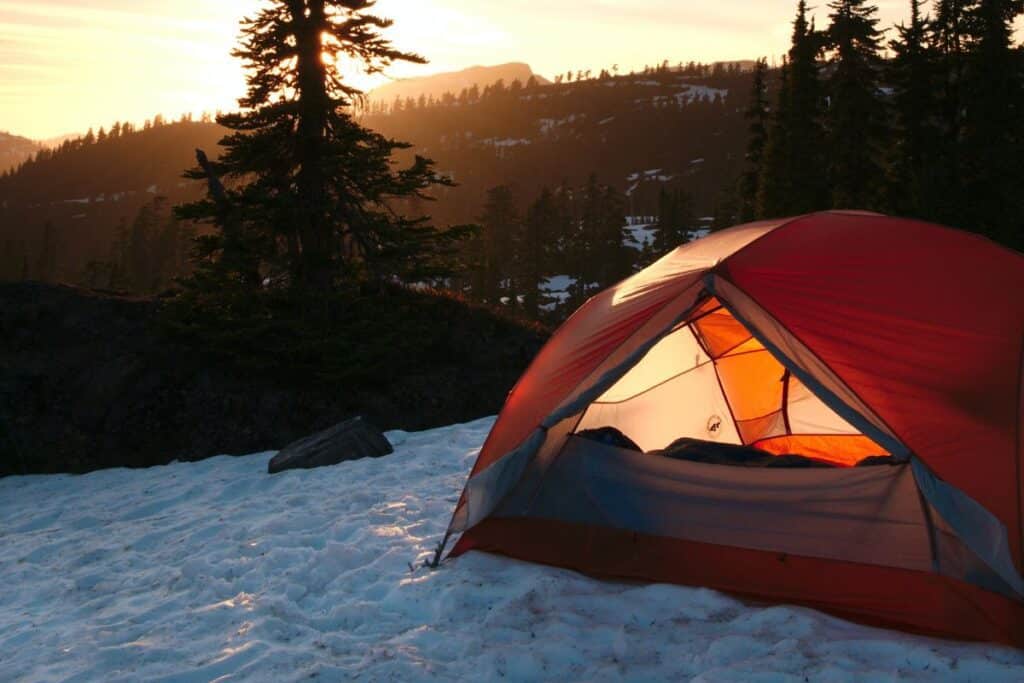
Winter Clothes and Shoes
This one almost goes without saying. If you’re camping for a snowshoeing expedition or ski trip, it’s essential to pack a winter coat, along with plenty of layers that you can add as necessary. While camping normally allows you to pack light, doing it in the winter is going to warrant bringing a heavier set of clothing along.
Even more, it’s important to bring thick, heavy socks and winter hiking boots. While the boots will allow you to make easier purchase while hiking through the snow, they’ll also help protect you from frostbite.
Shovels, Picks, and Axes
We already discussed the importance of shovels, but they have a special use alongside ice picks and axes for winter camping in particular.
Having any of these tools will be handy should you need to clear snow and ice away from a potential campsite and build a campfire from the surrounding woods. A miniature, handheld shovel can typically get the job done.
Blankets
In addition to bringing extra layers of clothing and a good sleeping bag, one of the most essential pieces for winter camping is extra blankets. Not only will they keep you warm while you’re sleeping, but hanging them inside your tent adds another layer of insulation that will keep out the cold air.
Add Aquatabs to Your Camping List
Putting aside all the other pieces we’ve recommended that will make your camping trip the best it can be, having pure water is essential for staying alive. Water in the wilderness isn’t always reliable and free of bacteria, however.
Putting Aquatabs at the top of your packing list guarantees you’ll have a safe, potable source of drinking water no matter where you go. Explore our options for campers and order your pack of our water purification tablets today.
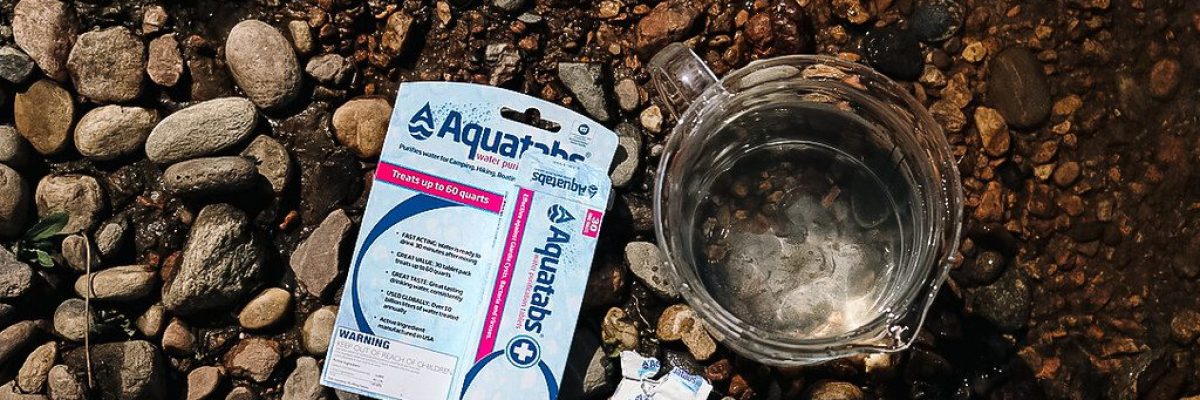
Recent Posts
-
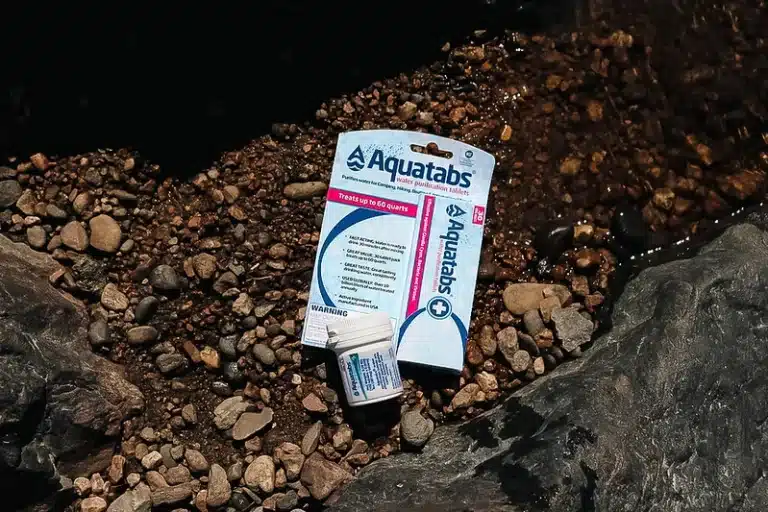
How to Use aquatabs for water purification while hiking
May 7, 2025 UncategorizedSo, you’re planning your next hike. You’ve got all the gear: your backpack, boots, binoculars—and Aquatabs to make sure you stay hydrated and healthy on.
-
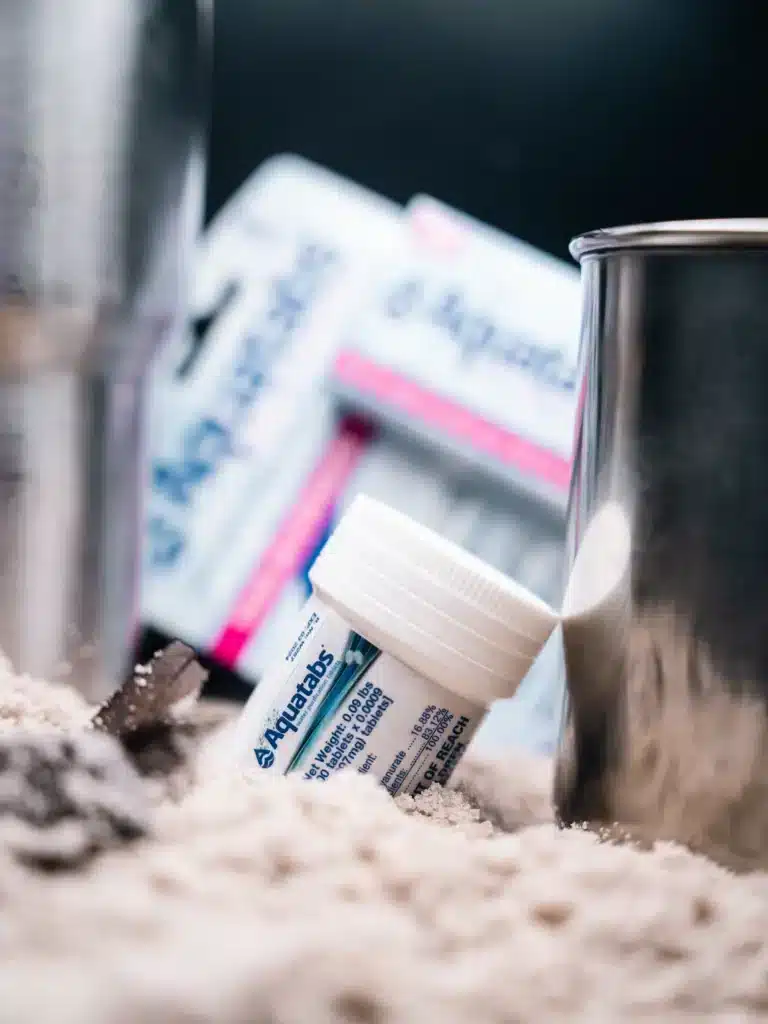
How do Aquatabs Work? The Science Behind Water Purification Tablets
April 18, 2025 UncategorizedBy: Jessica Miller Aquatabs: a fast-working water purification tablet that everyone knows and loves. However, not everyone understands how this helpful little tablet works. There.
-

Aquatabs Celebrates Women’s History Month: Historic Female Adventurers
March 28, 2025 UncategorizedBy: Jessica Miller History is not recorded objectively. Rather, it is dictated by social standards and circumstances. Although these social standards are constantly moving and.
-
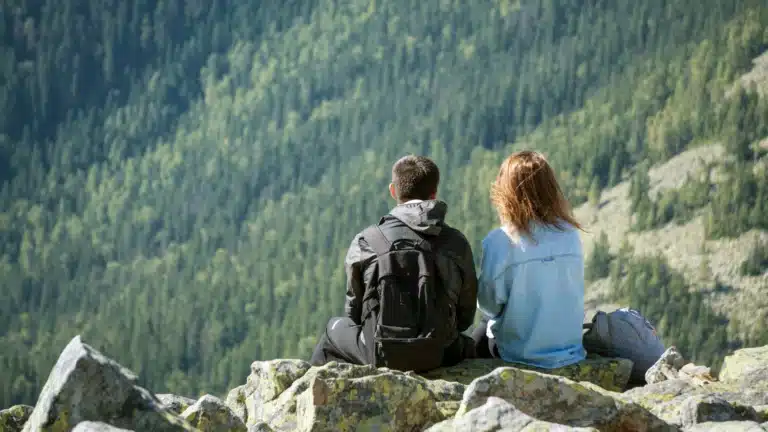
Love in Every drop: How aquatabs water purification tablets help protect what matters most
February 13, 2025 UncategorizedBy: Jessica Miller February is here and love is in the air! Congratulations to all for making it through the cold length of January! Whether.
-
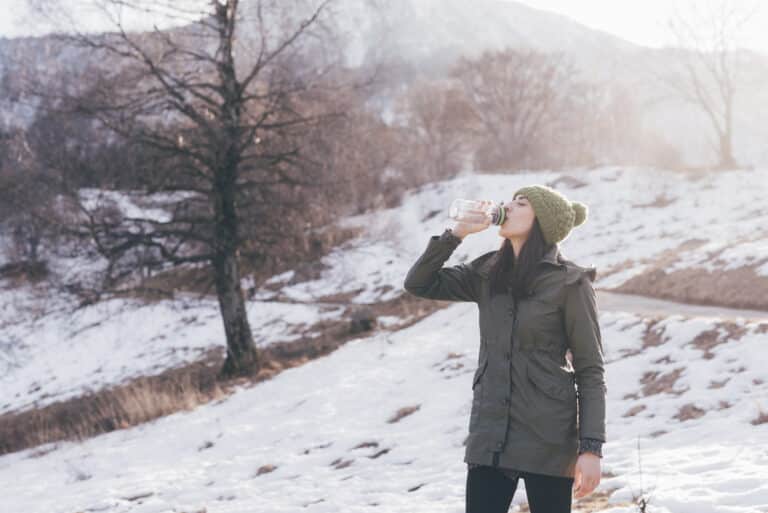
New Year's Resolution: Drink More Water
January 10, 2025 UncategorizedAs we adventure into the New Year, make staying hydrated a top priority! Protect your health at the same time by ensuring your water is.
-
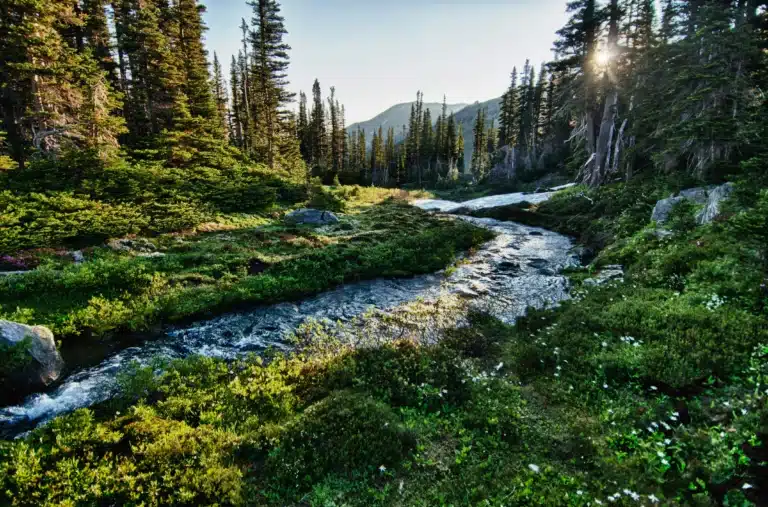
Aquatabs Holiday Gift Guide | Presents for Outdoors Lovers
December 5, 2024 NewsWe know that it can be tough to find that special something for the hiker, camper, or adventurer in your life - but there’s no need to stress! We’ve compiled a list of our favorite gear so that you can choose a gift that will keep giving all year round.
Recent Posts
-

How to Use aquatabs for water purification while hiking
May 7, 2025 Uncategorized -

How do Aquatabs Work? The Science Behind Water Purification Tablets
April 18, 2025 Uncategorized -
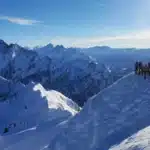
Aquatabs Celebrates Women’s History Month: Historic Female Adventurers
March 28, 2025 Uncategorized -
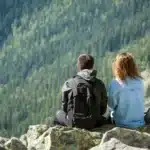
Love in Every drop: How aquatabs water purification tablets help protect what matters most
February 13, 2025 Uncategorized -

New Year's Resolution: Drink More Water
January 10, 2025 Uncategorized -
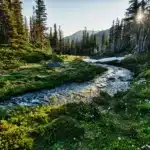
Aquatabs Holiday Gift Guide | Presents for Outdoors Lovers
December 5, 2024 News

